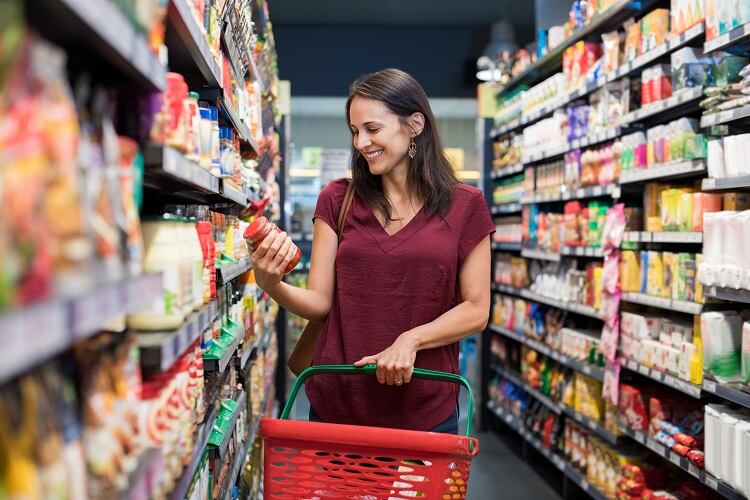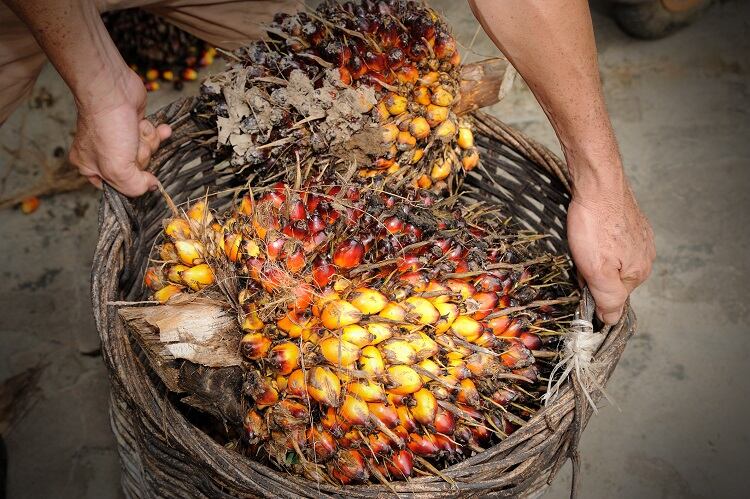Palm Done Right is calling on brands to provide clear labelling on packaging and to have an ‘open conversation’ with their consumers explaining why they chose palm oil for their products.
The sustainable palm oil advocacy group, initiated by palm oil producer Natural Habitats Group, has titled the campaign #SayItOnTheWrapper. It aims to not only increase use of the Palm Done Right label, but of sustainable palm oil in general.
“This campaign highlights the good work of partners who are educating consumers about their use of sustainable palm oil, but also provides an opportunity to encourage all brands and packaged products to #SayItOnTheLabel, be transparent, and trace their supply chain,” Palm Done Right told FoodNavigator.
Fighting the boycott
Palm oil is the most consumed vegetable oil in the world. Is it also the most controversial, due to its association with deforestation, biodiversity loss, and human rights abuse.
This has led some retailers, manufacturers, and consumers to boycott palm oil.
In the UK, supermarket chain Iceland is a well-known example of a retailer pledging to eliminate palm oil from its own label products.
And in manufacturing, some brands have reformulated products to remove palm oil, and marketed their products as ‘palm-oil free’ – which Palm Done Right suggests has largely been undertaken in response to consumer demand.
Yet according to the sustainable palm oil advocate, reformulating to swap out palm oil for alternative vegetable oils can have negative impacts.

Firstly, the functional characteristics of palm oil improve the quality, taste, shelf life and overall performance of a broad range of products, argues Palm Done Right. “Using an alternative to palm oil will negatively impact product performance.”
Secondly, vegetable oil alternatives – such as rapeseed or coconut oil – are regarded less sustainable than sustainably produced palm oil. In terms of yield, WWF’s 2016 data revealed that oil palm produced a yield of approximately 3.8 tonnes per hectare (t/h). Rapeseed oil, however, stands at approximately 0.8 t/h, sunflower seed oil at 0.7 t/h, and soybean oil at 0.5 t/h.
“Palm oil is the most efficient vegetable oil, generating up to 10 times more volume than some of its alternatives,” noted Palm Done Right. “Replacing palm oil by other vegetable oils will mean more land is needed, leading to more land use change for agricultural crops.”
Palm Done Right has also raised concerns that swapping out palm oil for vegetable oil alternatives would impact the livelihoods for farmers and works in the palm oil sector
‘Stop hiding palm oil use'
Palm Done Right describes its new #SayItOnTheWrapper campaign as ‘a call to action for transparent communication around palm oil’.
The campaign is a way to highlight Palm Done Right’s brand partners and offer an opportunity for other brands to elevate their transparency and build consumer trust.
“Another important audience [aside from consumers] for this campaign are brand manufacturers and retailers who are shying away from transparent communication around the palm oil used in the products that they produce or list, because they are afraid of the negative consumer backlash due to all the media around palm oil’s destructive practices,” Natural Habitats Group’s Sustainability and Corporate Communications Director, and Palm Done Right spokesperson, Monique van Wijnbergen, told this publication.
“The call to action is to stop ‘hiding’ palm oil use behind unclear ingredient names, instead to have an open and transparent conversation with their consumers and shoppers around why they use palm oil and will continue to use it, as its lifts product quality and performance.
“We are showcasing Palm Done Right’s brand partners that choose to actively communicate about palm oil and highlight it on their labels, to encourage others to follow their example.”
Fear of consumer backlash
As van Wijnbergen suggested, brands are often hesitant to carry sustainable palm oil logos on their products due to a fear of consumer backlash against palm oil.
For Palm Done Right, this indicates a lack of clear information and understanding around the difference between ‘sustainable palm oil that supports people and a healthy planet’ versus ‘conflict or dirty palm that has a negative effect on the planet’.
“Unfortunately, most consumers and shoppers are only aware of the bad practices in palm oil production since there has been so much attention for it in the media,” explained van Wijnbergen. “They are not aware that there is another story too, the story of sustainable palm oil and how that is the solution, instead of turning away from it.
“Unless more shoppers and consumers are aware of the positive side of palm oil done right, sustainable palm oil, brands will be hesitant to highlight even sustainable palm oil logos, as probably most of their users are not even aware that palm oil ingredients are used to make their products.”

Is it up to the consumer, or manufacturer, to select sustainable palm oil?
The #SayItOnTheWrapper campaign begs the question: is the onus on the consumer to select products containing sustainably sourced palm oil, or is the responsibility on the brands to source only sustainably sourced ingredients?
The consumer certainly has an opportunity to demand that the brands they choose are ‘fully transparent’ and ‘offer supply chain tracing’, responded Palm Done Right. However, the responsibility falls largely on the manufacturers to be open and transparent concerning their ingredients lists, noted the sustainable palm oil advocate.
Retailers are also in a position to put pressure on the brands they work with to demand transparency in labelling, we were told.
“Compared to products like coffee, cocoa and tea, palm oil is often an invisible ingredient in most products. The majority of consumers are not aware that palm oil-based ingredients were used to make many of the products they use,” explained van Wijnbergen.
“The game-changer will be food manufacturers taking responsibility and replacing the conventional palm oil they use with sustainable palm oil and communicating about it.
“As for retailers, they will be game-changers as well when they update their palm oil policy and demand suppliers to work with sustainably sourced palm oil only to secure their listing.”


